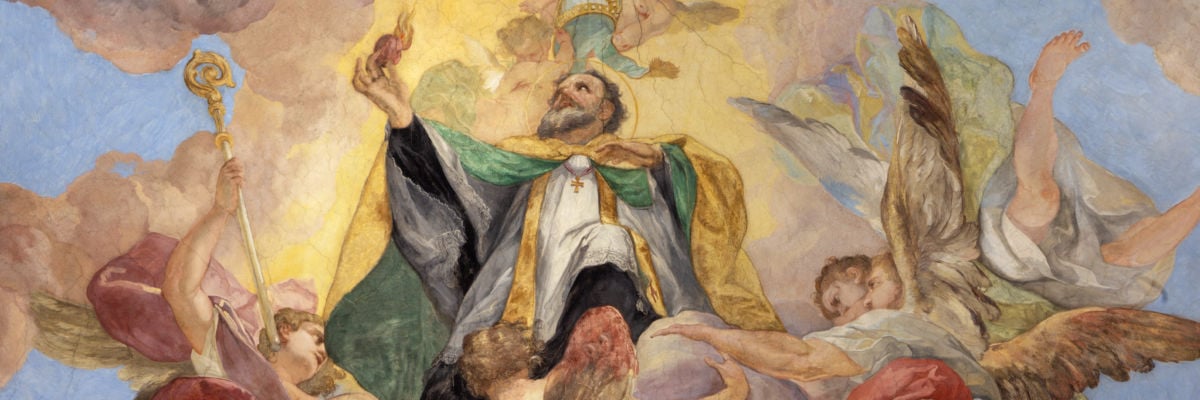
Question:
Answer:
None whatsoever. Here are the facts. Augustine of Hippo (A.D. 354-430), bishop, apologist, and doctor of the Church, converted to the Catholic faith from Manichaeism and was baptized in 387. He lived as a monk for a brief period and was soon ordained a priest. In the summer of 395 he was consecrated bishop of Hippo, the second largest diocese in Northern Africa at that time, and served as bishop for the ensuing 35 years.
Augustine was renowned as a preacher and pastor and especially as a prolific writer in defense of Catholic doctrines. Over his long career, he penned scores of brilliant sermons, letters, and treatises in which he explained Catholic doctrines and defended them against heretical attacks. He championed doctrines such as baptismal regeneration, infant baptism, purgatory, the sacraments as channels of God’s grace, and the sacrificial nature of the Mass, but he never “recanted” of any of these doctrines, and he died believing everything the Catholic Church taught.
Your minister friend’s confusion stems from his sloppy reading of Latin. Augustine never authored a work entitled Retractions. He did write Retractationes (also known as Retractationum) between 426-427. His purpose was not to recant of any Catholic doctrines he held but, rather, to clarify and enhance his previous efforts to explain and defend them.
As the patristic scholar, William A. Jurgens, explains,
English-speaking authors usually avoid the problem of what the title means by the simple expedient of referring to it by its Latin title, Retractationes. When it is mentioned in English and in the English translations now available it is invariably referred to as Retractations or Retractions. The first is an affront to English and the second is incorrect. Actually, Augustine had very little to retract, and the meaning of Retractationes is Reconsiderations, Revisions, Second Thoughts, or, as I have called it, Corrections. With the Corrections, Augustine again invented a new literary genre: a summation and criticism of his own writings. He had originally intended to include in his review his books, letters, and sermons. But when he had completed the review of his books in 426 or 427, he was persuaded to publish the whole work as it then stood. (The Faith of the Early Fathers [Collegeville: Liturgical Press, 1979] 3:163)
Unfortunately for your friend’s theory, Augustine’s Retractationes contain no tearful apologies or strident denunciations of any Catholic doctrine. His aim in writing was not to repudiate elements of his Catholic faith, but to do a better job of presenting them. He refined his position on various issues—issues he felt he had not dealt with satisfactorily in previous works—and withdrew certain arguments and analogies, replacing them with better ones.


